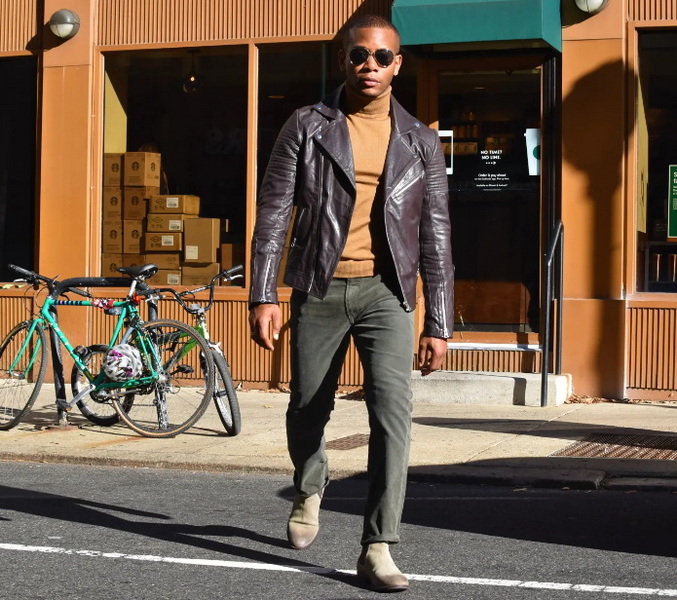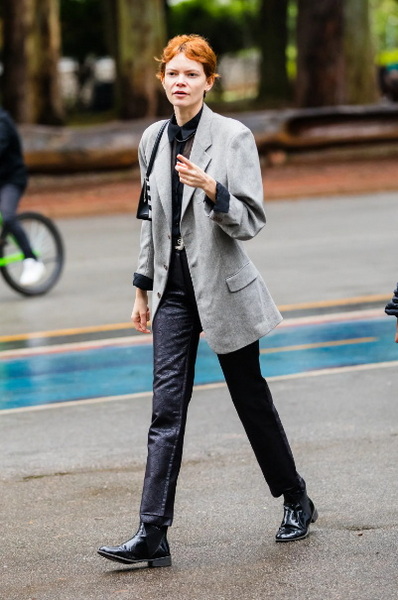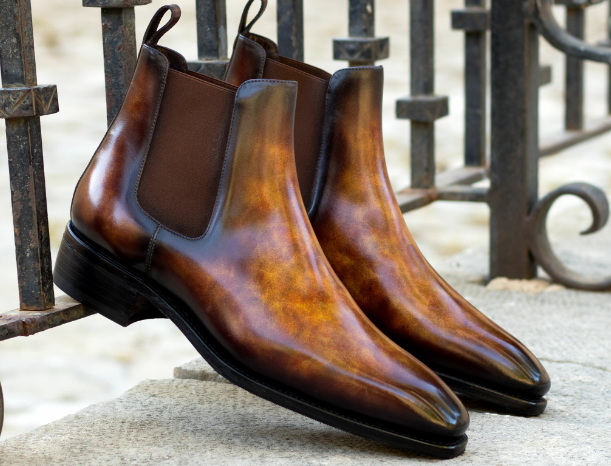Content Menu
● Introduction to Chelsea Boots
>> History of Chelsea Boots
>> Key Characteristics
● Materials Used in Chelsea Boots
>> Leather
>> Synthetic Materials
>> Rubber
● Styling Chelsea Boots
>> Formal Occasions
>> Casual Wear
>> Styling Tips
● How to Choose the Right Chelsea Boots
>> Fit
>> Material
>> Sole Type
>> Style
● Modern Trends in Chelsea Boots
>> Chunky Chelsea Boots
>> Sustainable Options
● Conclusion
● FAQs
>> 1. What are the defining features of Chelsea boots?
>> 2. How did Chelsea boots get their name?
>> 3. What materials are commonly used to make Chelsea boots?
>> 4. How should Chelsea boots fit?
>> 5. Can Chelsea boots be styled for both formal and casual occasions?
● Citations:
Chelsea boots are a timeless and versatile footwear staple that has been a part of fashion for centuries. Known for their sleek design, comfort, and practicality, they have evolved from being a simple walking boot to a fashion icon worn across various styles and occasions. In this article, we will delve into the history, characteristics, materials, and styling options of Chelsea boots, along with tips on how to choose the perfect pair.

Introduction to Chelsea Boots
Chelsea boots are laceless ankle boots characterized by their elastic side panels, which allow for easy slip-on and removal. This feature, combined with their ankle-high design and low heels, makes them both stylish and practical for everyday wear.
History of Chelsea Boots
The origins of Chelsea boots date back to the Victorian era, when they were designed by J. Sparkes-Hall, the bootmaker to Queen Victoria, in the mid-19th century. Initially created for ease of wear, these boots quickly gained popularity among the aristocracy and later became a staple in equestrian fashion, known as "paddock boots" or "J. Sparkes-Hall boots"[1][4].
Over time, Chelsea boots have experienced several revivals in popularity. In the 1960s, they became a fashion staple among the mod subculture, with icons like The Beatles often wearing them[7]. The 1970s saw Chelsea boots adopted by the punk movement, often worn in a more rebellious style with studs or additional laces[7].
Key Characteristics
- Elastic Sides: The defining feature of Chelsea boots is their elasticated sides, which enable easy wear and removal without laces.
- Ankle Height: They are designed to cover the ankle, providing protection and support.
- Low Heels: Traditionally, Chelsea boots have low heels, making them suitable for walking.
- Two-Part Construction: The upper consists of two parts: the vamp (front) and quarters (back), joined near the ankle by elastic or vulcanized rubber[4].
Materials Used in Chelsea Boots
Chelsea boots are crafted from a variety of materials, each offering unique benefits:
Leather
Leather is the most common material used for Chelsea boots due to its durability and ability to mold to the foot over time. Full-grain leather and suede are popular choices, providing a luxurious feel and appearance[2].
Synthetic Materials
Some Chelsea boots are made from synthetic materials like faux leather or vegan leather, offering an eco-friendly alternative without compromising on style or durability[2].
Rubber
The outsole of Chelsea boots often features rubber for improved traction and durability, making them suitable for both formal and casual wear. Rubber soles provide better grip in various terrains, while leather soles are ideal for dress boots, maintaining the timeless elegance of the original Chelsea boot[5].
Styling Chelsea Boots
Chelsea boots are incredibly versatile and can be styled in numerous ways:
Formal Occasions
For formal events, pair Chelsea boots with a suit or a dress for a sophisticated look. Patent leather or polished leather boots are ideal for these occasions. A classic combination is pairing dark-colored Chelsea boots with a navy or charcoal suit[6].
Casual Wear
For a casual look, Chelsea boots can be paired with jeans and a t-shirt or sweater. Suede or distressed leather adds a rugged touch, making them perfect for weekend outings or relaxed gatherings[6].
Styling Tips
- Gap Between Boot and Ankle: Leave about an inch to an inch and a half gap between the boot's neck and your ankle to avoid trousers falling into the boot[6].
- Sock Choice: Opt for monochrome socks to match your boots or choose socks with detail to add flair. Avoid ankle socks as they may roll down[6].

How to Choose the Right Chelsea Boots
Choosing the right Chelsea boots involves considering several factors:
Fit
Chelsea boots should fit snugly around the ankle without feeling too tight. Ensure there is enough room for your toes to wiggle. The elastic and leather will stretch over time, so a snug initial fit is crucial[5].
Material
Decide between leather, suede, or synthetic materials based on your lifestyle and preferences. Leather offers durability, while suede provides a stylish, textured look[2].
Sole Type
Opt for rubber soles for better grip or leather soles for a more formal look. Consider a Goodyear welted sole for durability and ease of repair[5].
Style
Choose between classic, brogue, or chunky styles based on your personal taste and occasion. Classic styles are versatile and easy to pair with most outfits[5].
Modern Trends in Chelsea Boots
In recent years, Chelsea boots have seen several modern interpretations, including chunky designs and bold colors. These trends offer a fresh take on the classic style, making them appealing to those looking for a statement piece in their wardrobe[3].
Chunky Chelsea Boots
Chunky Chelsea boots have become a popular trend, offering a bold and edgy look. They can be styled with skinny jeans, faux leather leggings, or even skirts for a chic, modern appearance[3].
Sustainable Options
With the rise of eco-conscious fashion, vegan and faux leather Chelsea boots have gained popularity. These options provide a stylish alternative without compromising on animal welfare[2].
Conclusion
Chelsea boots are a timeless fashion staple that combines elegance with practicality. Their versatility makes them suitable for both formal and casual occasions. Whether you prefer classic leather or modern synthetic materials, there's a Chelsea boot style to fit every taste and need.

FAQs
1. What are the defining features of Chelsea boots?
Chelsea boots are characterized by their elastic side panels, ankle-high design, and low heels. These features make them easy to slip on and off without laces.
2. How did Chelsea boots get their name?
Chelsea boots are named after the affluent London neighborhood of Chelsea, where they became popular in the mid-20th century.
3. What materials are commonly used to make Chelsea boots?
Common materials include leather (full-grain and suede), synthetic materials (faux leather), and rubber for the outsole.
4. How should Chelsea boots fit?
Chelsea boots should fit snugly around the ankle without feeling too tight. There should be enough room for your toes to wiggle, and the heel should not slip excessively.
5. Can Chelsea boots be styled for both formal and casual occasions?
Yes, Chelsea boots are versatile and can be styled for both formal events (with suits or dresses) and casual wear (with jeans and t-shirts).
Citations:
[1] https://www.morjas.com/us/blog/history-chelsea-boots/
[2] https://nicksboots.com/blog/post/chelsea-work-boots/
[3] https://bycharlotteb.com/chunky-chelsea-boots/
[4] https://www.campobelloshoes.com/the-history-behind-chelsea-boots.
[5] https://www.ahume.co.uk/blog/chelsea-boots-the-ultimate-buyers-guide/
[6] https://www.cheaney.co.uk/blog/3-ways-to-effortlessly-style-mens-chelsea-boots/
[7] https://baudoinlange.com/blogs/news/history-of-chelsea-boot
[8] https://martindingman.com/pages/chelsea-boot-buying-guide
[9] https://www.shoezone.com/Blog/the-low-down-on-chelsea-boots
[10] https://terilynadams.com/how-to-style-chelsea-boots/
[11] https://www.vogue.com/article/chelsea-boots
[12] https://en.wikipedia.org/wiki/Chelsea_boot
[13] https://www.dromex.co.za/wp-content/uploads/2023/11/technical-datasheet-chelsea-boot.pdf
[14] https://www.reddit.com/r/mensfashion/comments/1gog4cd/my_first_pair_of_chelsea_boots_what_do_i_style/
[15] https://fromsqualortoballer.com/buying-guide-chelsea-boot/
[16] https://row.crockettandjones.com/blogs/the-article/origins-of-the-chelsea-boot
[17] https://www.gentlemansgazette.com/chelsea-boots-guide/
[18] https://www.merricksart.com/how-to-wear-chelsea-boots/
[19] https://www.acemarks.com/blogs/magazine/chelsea-boots-ultimate-guide
[20] https://www.timberland.com.hk/en/products/a41g7w01-mens-atwells-ave-mid-chelsea-boot

















